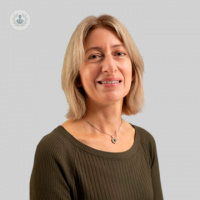Iron deficiency without anaemia in children
Written in association with:Iron deficiency is a condition that is commonly associated with anaemia. However, it’s important to establish the difference between iron-deficiency anaemia and iron deficiency without anaemia.
We speak to leading consultant paediatric specialist Dr Margarita Burmester all about iron deficiency without anaemia in children. She looks at the causes, signs and symptoms, and more, in this informative article.

What is iron deficiency without anaemia?
Iron deficiency without anaemia occurs when the body lacks sufficient iron, but the red blood cells are still able to carry enough oxygen. Iron is an essential mineral that helps in the production of healthy red blood cells. Without enough iron, children may experience symptoms such as fatigue, weakness, and difficulty concentrating.
What are the causes of iron deficiency without anaemia?
Inadequate iron intake
Not consuming enough iron-rich foods in the diet can lead to iron deficiency.
Poor iron absorption
Certain conditions, such as coeliac disease or gastrointestinal disorders, can affect the body's ability to absorb iron properly.
Increased iron needs
Rapid growth during childhood and adolescence can increase the demand for iron in the body.
What are the signs and symptoms of iron deficiency without anaemia?
Children with iron deficiency without anaemia may exhibit the following signs and symptoms:
- Fatigue and weakness
- Pale skin
- Poor appetite
- Irritability
- Difficulty concentrating
- Restless legs
- Cold hands and feet
What ways can be iron deficiency without treatment be prevented and treated?
Iron-rich diet
Encourage your child to consume foods rich in iron, such as lean meats, poultry, fish, beans, lentils, fortified cereals, and green leafy vegetables.
Vitamin C
Include foods high in vitamin C, such as citrus fruits, strawberries, and bell peppers, as vitamin C enhances iron absorption.
Limit milk consumption
Excessive milk intake can interfere with iron absorption. Limit milk to no more than 2 cups or glasses per day for children over 2 years old.
Iron supplements
In some cases, the healthcare provider may recommend iron supplements to ensure adequate iron levels. Always consult with a healthcare professional before starting any supplements.
Regular check-ups
Schedule regular check-ups with your child's healthcare provider to monitor iron levels and overall health.
How can parents assist their child with iron deficiency without anaemia?
Lead by example
Make healthy food choices yourself and encourage the whole family to eat a balanced diet.
Meal planning
Plan meals and snacks that include iron-rich foods to ensure your child gets enough iron in their diet.
Cooking methods
Use cast-iron cookware for cooking, as it can increase the iron content of the food.
Education
Teach your child about the importance of iron-rich foods and the role of iron in their body's health.
Hydration
Encourage your child to drink water throughout the day, as it helps with iron absorption.
When should I seek medical advice for my child with iron deficiency without anaemia?
If you suspect your child may have iron deficiency without anaemia or if they exhibit any of the symptoms mentioned above, it is important to consult with a healthcare provider. They can perform the necessary tests and provide appropriate guidance and treatment.
Remember, iron deficiency without anaemia can impact your child's overall well-being and development. By ensuring a balanced diet and seeking appropriate medical advice, you can help your child maintain optimal iron levels and promote their overall health and vitality.
To arrange an expert consultation with Dr Burmester regarding iron deficiency without anaemia in your child, visit her Top Doctors profile.


